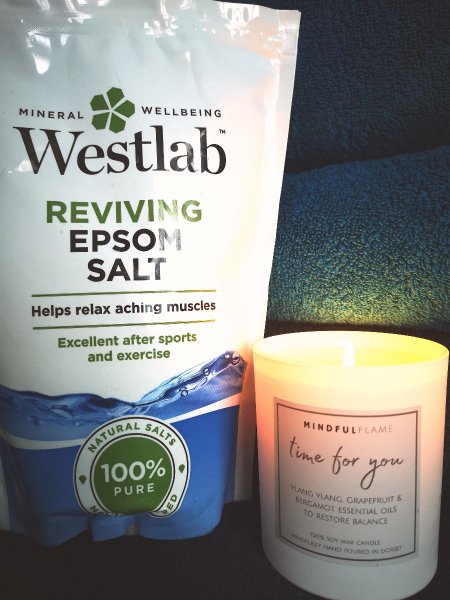Will massage help me?
If you are thinking about getting a massage for the first time, or are looking to change therapist, the amount of information and variety of options out there can feel overwhelming.
Will massage help me? What type do I need? Will it hurt? How will I feel?
There's no 'one-size-fits-all' with massage, and what you need personally will even change depending on your current health, lifestyle and stress levels.
I've taken some of the most frequently asked questions I get from people considering massage and answered them here so that I can walk you through those initial stages too.
What does massage actually do?
Massage techniques break down adhesions between the tissues and softens and re-aligns them, freeing up muscles and allowing easier and more effective movement. Massage:
reduces pain
reduces muscle tension
reduces stress hormones and increases sustained relaxation
increases joint mobility and flexibility, promoting overall movement of the body
improve recovery of soft tissue injuries
increases circulation and stimulation of the lymphatic system
But the benefits go far beyond the 'clinical', massage also heals through the power of touch. As author, speaker and wellness expert Howard Murad explains in this beautiful video, "a bear hug a day keeps the Doctor and Psychiatrist away":
https://drhowardmurad.com/the-healing-power-of-touch/
How does it work? Hugging and soothing physical contact releases the bonding hormone oxytocin, soothes our central nervous system, and boosts immune function. So, massage is not only great to relieve muscle pain, it also is one of the most effective tools for emotional care and stress reduction.
Why are there so many different types of massages?
There are so many techniques and approaches to providing an effective treatment, most of which are representative of where their purpose derived and what the goals of the treatment are:
Sports massage will always have a focus on functionality.
Oncology massage uses techniques to nurture the body according to what stage of the cancer journey the client is on.
Scar Work therapy can help loosen and release tight scar tissue to reduce discomfort and increase mobility of the area of skin, fascia or nearby joints.
A therapeutic massage (potentially using specific aromatherapy oils or hot stones) focus on relaxing.
I strongly believe the art to effective massage is combining techniques and applying different approaches to provide a truly bespoke massage that focusses on relaxing the mind and body whilst promoting healing, restoration and movement.
When is the best time to book a massage?
I don't recommend booking a massage:
on very busy day
pre-exercise
if you are travelling extensively
when feeling under the weather, have a fever or an acute illness (however massage can be very effective for some chronic conditions)
when you have an acute injury (due to the risk of inflammation)
within 6 weeks of surgery
Otherwise, every day is a great day for a massage!
Please don't wait until pain becomes so severe that it interrupts daily life, your ability to exercise and/or sleep or so that you need pain relief. The body has a terrible habit of compensating, and then further injuries can occur and result in longer recovery times.
Is it ok to sleep during a massage?
Yes! Sleeping during a massage is actually a sign that you have managed to relax and fall into a restorative state.
You may also feel tired and lethargic following a massage. If you do, make sure to listen to your body and allow it to slip into a restorative state by resting.
Should massage hurt?
A massage should never hurt.
It is common to experience a grateful pain, in fact this is actually quite a good sign. A grateful pain is often experienced when encouraging a greater range of movement, this pain eases off after a few seconds and doesn't have any lasting discomfort. It is very different to 'ouchy' pain, which is a bad sign.
What should I do after a massage?
There are several things you can do after massage that will help you to utilise its benefits.
Massage gets your blood circulating and begins to release built-up toxins. As your muscles loosen those toxins loosen up and start making their way toward your liver and other organs. Drink plenty of water to stay hydrated and help flush out the toxins and waste products.
If you are feeling a tired, or even a little lightheaded, eat a healthy snack to give yourself an added energy boost.
Give your body and mind some down time. To avoid risk of injury or overworking a muscle, I suggest you avoid any physical activity for the remainder of the day.
Try soaking in bath with Epsom salts, a popular remedy for many ailments. Epsom salts help to ease muscle soreness and stress but they can also help stabilize mood and relieve stress, anxiety and depression.
When should I rebook?
My advice is to always book in before you get as bad as you were. Always keep momentum with recovery and never reset.
Activity levels, current state and objective of treatment will dictate the regularity of treatments. However, most people would feel the benefits from a massage every 4-6 weeks. If you are recovering from illness, surgery or injury, it may be that you benefit from 2-3 treatments in quick succession followed by treatments more spaced out.
Please reach out, I am always happy discuss your individual massage requirements.

